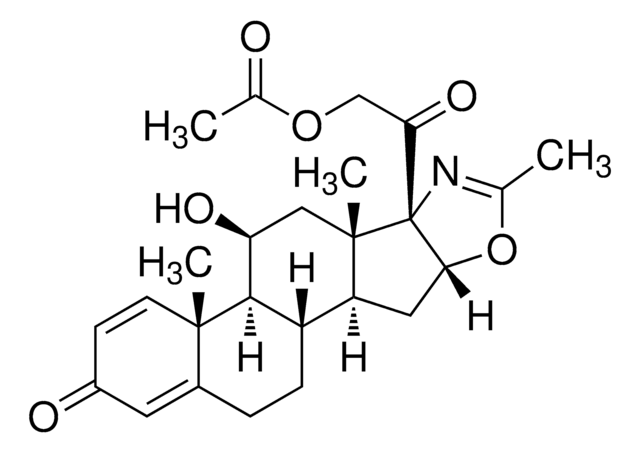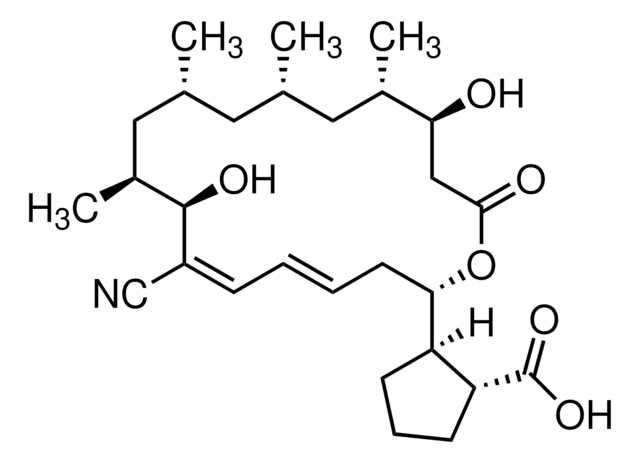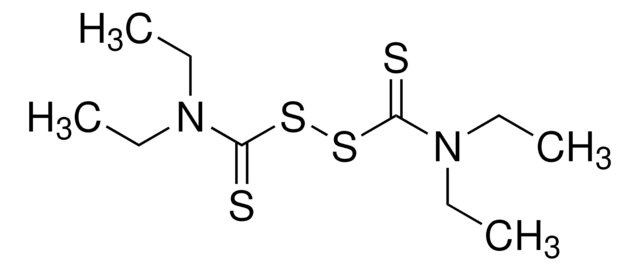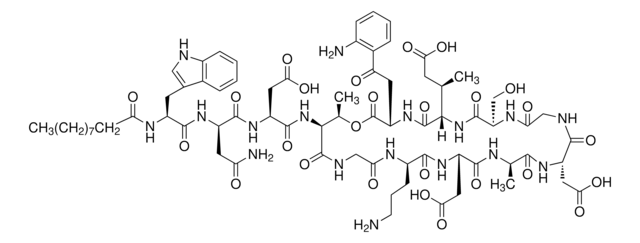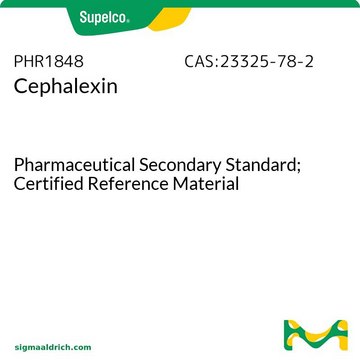5.05763
ProRS Inhibitor, Halofuginone
Synonym(s):
ProRS Inhibitor, Halofuginone, STENOROL, HF, Hydrobromide, prolyl-tRNA synthetase Inhibitor, trans-(±)-7-Bromo-6-chloro-3-[3-(3-hydroxy-2-piperidinyl)-2-oxopropyl]-4(3H)-quinazolinone hydrobromide
About This Item
Recommended Products
Assay
≥98% (HPLC)
Quality Level
form
powder
potency
18 nM IC50
manufacturer/tradename
Calbiochem®
storage condition
OK to freeze
protect from light
color
white
solubility
DMSO: 100 mg/mL
storage temp.
2-8°C
SMILES string
[Br-].Brc1cc2c(cc1Cl)C(=O)N(C=N2)CC(=O)CC3NCCC[C@H]3O.[H+]
InChI
1S/C16H17BrClN3O3.BrH/c17-11-6-13-10(5-12(11)18)16(24)21(8-20-13)7-9(22)4-14-15(23)2-1-3-19-14;/h5-6,8,14-15,19,23H,1-4,7H2;1H/t14?,15-;/m1./s1
InChI key
SJUWEPZBTXEUMU-NUNOUFIPSA-N
General description
Biochem/physiol Actions
prolyl-tRNA synthetase
Packaging
Warning
Reconstitution
Other Notes
Keller, T.L., et al. 2012, Nat. Chem. Biol.12, 311.
Sundrud, M.S., et al. 2009, Science324, 1334.
Elkin, M., et al. 2000, FASEB J.14, 2477.
Elkin, M., et al. 1999, Clin. Cancer Res.5, 1982.
Legal Information
Signal Word
Danger
Hazard Statements
Precautionary Statements
Hazard Classifications
Acute Tox. 1 Dermal - Acute Tox. 2 Inhalation - Acute Tox. 2 Oral - Aquatic Acute 1 - Aquatic Chronic 1 - Eye Irrit. 2 - Skin Irrit. 2
Storage Class Code
6.1A - Combustible, acute toxic Cat. 1 and 2 / very toxic hazardous materials
WGK
WGK 3
Flash Point(F)
Not applicable
Flash Point(C)
Not applicable
Regulatory Listings
Regulatory Listings are mainly provided for chemical products. Only limited information can be provided here for non-chemical products. No entry means none of the components are listed. It is the user’s obligation to ensure the safe and legal use of the product.
PDSCL
Poisonous substance
Certificates of Analysis (COA)
Search for Certificates of Analysis (COA) by entering the products Lot/Batch Number. Lot and Batch Numbers can be found on a product’s label following the words ‘Lot’ or ‘Batch’.
Already Own This Product?
Find documentation for the products that you have recently purchased in the Document Library.
Our team of scientists has experience in all areas of research including Life Science, Material Science, Chemical Synthesis, Chromatography, Analytical and many others.
Contact Technical Service
